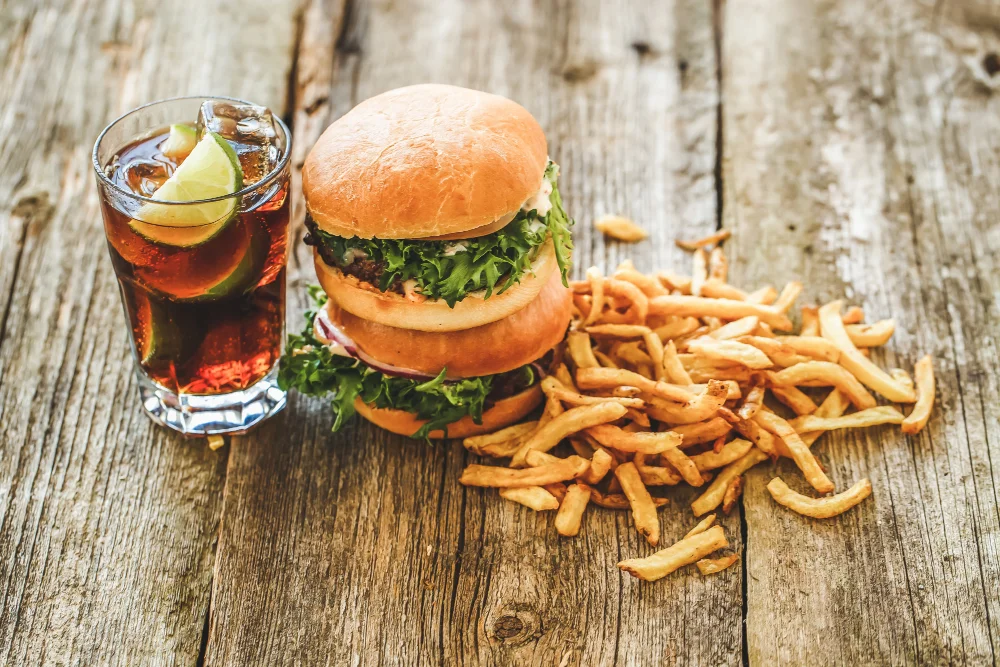
What are fat burners?
Torch Fat Burner is a weight loss supplement that contains various ingredients such as caffeine, green tea extract, capsaicin, and yohimbine. The effectiveness of these ingredients in promoting weight loss has been the subject of scientific research, but results have been mixed.
It’s important to understand that no supplement can substitute a healthy diet and regular exercise. Also, some ingredients in fat burners can have side effects, such as increased heart rate, jitters, and restlessness.
Is it OK to take fat burners?
Taking fat burners can be safe for some individuals, but it is not suitable for everyone. Fat burners contain various ingredients that can have effects on the body, such as boosting metabolism, suppressing appetite, and promoting fat loss.
However, some ingredients in fat burners can have side effects, such as increased heart rate, jitters, and restlessness. They can also interact with other medications and pre-existing medical conditions, such as heart disease, high blood pressure, and mental health disorders.
It’s important to consult a healthcare professional before taking any fat burner supplement, especially if you have any health concerns. This can help determine if it’s safe for you and what the recommended dose is.
Additionally, no supplement can substitute a healthy diet and regular exercise. A balanced diet that provides all essential nutrients and regular physical activity are key components of a weight loss program.
In conclusion, whether it’s OK to take fat burners depends on individual health and lifestyle factors. Consult a healthcare professional for personalized advice.
What Are the Ingredients in Fat Burner Supplements?
Fat burner supplements typically contain a blend of ingredients intended to increase metabolism, suppress appetite, and promote fat loss. Here are some common ingredients in fat burner supplements:
Caffeine: A stimulant that can increase energy levels and boost metabolism.
Green Tea Extract: Contains antioxidants and caffeine that can boost metabolism and help with weight loss.
Capsaicin: An ingredient derived from chili peppers that can increase metabolism and reduce appetite.
Yohimbine: An alkaloid found in the bark of a tree native to West Africa that can stimulate the release of fat from fat cells.
Garcinia Cambogia: A fruit that contains hydroxycitric acid (HCA), which may suppress appetite and help with weight loss.
Raspberry Ketones: A natural substance found in raspberries that is claimed to boost metabolism and increase fat breakdown.
CLA (Conjugated Linoleic Acid): A type of fatty acid that has been suggested to reduce body fat and improve body composition.
These ingredients have been the subject of scientific research, but results have been mixed. Some people may experience side effects from taking fat burner supplements, such as increased heart rate, jitters, and restlessness. Consult a healthcare professional before taking any supplement, especially if you have any pre-existing medical conditions or are taking medication.
What are the disadvantages of fat burners?
Fat burners, like any other supplement, can have potential disadvantages that should be considered before taking them. Here are some common disadvantages of fat burners:
- Side Effects: Some ingredients in fat burners can cause side effects such as increased heart rate, jitters, restlessness, and nausea.
- Interactions with Medications: Fat burners can interact with certain medications, such as antidepressants, blood thinners, and diabetes medications, among others.
- Unproven Effectiveness: The effectiveness of fat burners in promoting weight loss has been the subject of scientific research, but results have been mixed. Some ingredients in fat burners have been found to be ineffective for weight loss.
- Not Suitable for Everyone: Fat burners are not suitable for everyone, particularly for individuals with pre-existing medical conditions, such as heart disease, high blood pressure, or mental health disorders.
- Limited Long-term Effectiveness: The effects of fat burners on weight loss are typically short-term, and the weight may return once the supplement is discontinued.
- No Substitute for Healthy Diet and Exercise: No supplement, including fat burners, can substitute a healthy diet and regular exercise. A balanced diet that provides all essential nutrients and regular physical activity are key components of a weight loss program.
What ingredients burn belly fat?
There is no single ingredient that has been scientifically proven to specifically target and burn belly fat. Weight loss and fat reduction result from a combination of factors, including diet, exercise, and lifestyle.
However, some ingredients found in weight loss supplements, including fat burners, may have effects that can contribute to weight loss and fat reduction, including:
- Caffeine
- Green Tea Extract
- Capsaicin
- CLA (Conjugated Linoleic Acid)
- Garcinia Cambogia:
It’s important to keep in mind that these ingredients have been the subject of scientific research, but results have been mixed. Furthermore, no supplement can substitute a healthy diet and regular exercise, which are key components of a weight loss program.
Buy:
What are the 3 fat burning foods?
There is no specific food that has been scientifically proven to “burn fat,” as weight loss is a result of a combination of factors including diet, exercise, and lifestyle. However, certain foods can contribute to weight loss and fat reduction by:
- Increasing metabolism: Foods that are high in protein, such as lean meats, dairy, and eggs, can boost metabolism and help with weight loss.
- Suppressing appetite: Foods that are high in fiber, such as fruits, vegetables, and whole grains, can keep you feeling full for longer, reducing the need to snack or overeat.
- Burning more calories: Foods that are high in thermogenic ingredients, such as spices, like black pepper, cinnamon, ginger, and chili pepper, can increase the number of calories burned.
Here are 3 examples of foods that can contribute to weight loss and fat reduction:
- Salmon: Rich in omega-3 fatty acids and high in protein, which can increase metabolism and reduce inflammation.
- Avocados: High in fiber and healthy monounsaturated fats, which can help you feel full and support healthy weight management.
- Berries: Low in calories, high in fiber, and packed with antioxidants, which can help reduce oxidative stress and support weight loss.
Remember, the key to successful weight loss is a balanced diet that provides all essential nutrients, combined with regular physical activity. It’s important to speak with a healthcare professional for personalized nutrition and weight loss advice.
Read: The Top 10 Foods to Eat While Taking Torch Fat Burner for Optimal Weight Loss
Are fat burners a waste of money?
Fat burners, like any supplement, can be a waste of money for some individuals and provide benefits for others.
On one hand, there is limited scientific evidence supporting the effectiveness of fat burners in promoting weight loss. Many of the ingredients in fat burners have not been proven to be effective, and some have even been found to be harmful.
On the other hand, some people may experience benefits from taking fat burners, particularly those that contain caffeine or other stimulants that can increase energy levels and boost metabolism.
Ultimately, the effectiveness of fat burners will depend on individual factors, such as overall health, diet, and lifestyle, and the specific ingredients and formulation of the fat burner product.
In conclusion, it’s important to consider the potential disadvantages and side effects of fat burners, as well as their limited long-term effectiveness, before taking them. It’s also recommended to speak with a healthcare professional to determine if fat burners are safe and appropriate for you, and to discuss the best approach to reach your weight loss goals.
Do fat burners damage the liver?
Some fat burners contain ingredients that have the potential to harm the liver. Some of these ingredients include:
- Hydroxycut: A popular fat burner that was linked to several cases of liver injury, leading to its removal from the market in 2009.
- Green tea extract: Some studies have shown that high doses of green tea extract can cause liver damage.
- Yohimbine: An ingredient derived from the yohimbe tree that has been associated with liver toxicity.
- Garcinia Cambogia: A fruit extract that has been linked to liver damage in rare cases.
It’s important to keep in mind that these cases are rare and the risk of liver damage from fat burners can be reduced by taking products that contain safe and well-studied ingredients in recommended doses, and avoiding products that contain dangerous or untested ingredients.
Furthermore, it’s recommended to speak with a healthcare professional before taking any supplement, including fat burners, to determine if they are safe and appropriate for you, and to monitor your liver function regularly while taking them.
In conclusion, while some fat burners have the potential to harm the liver, this is not a universal effect, and the risk can be reduced by using safe and well-studied products and consulting a healthcare professional.
Do fat burners work without exercise?
Fat burners may have some effects on weight loss without exercise, but their effectiveness will likely be limited. Exercise, particularly resistance training and cardiovascular exercise, has been shown to increase muscle mass and metabolism, leading to improved body composition and weight loss.
Moreover, fat burners typically contain stimulants, such as caffeine, that can increase energy levels, boost metabolism, and reduce appetite, leading to a modest increase in caloric expenditure and weight loss. However, these effects are typically limited and may not result in significant weight loss without a calorie-controlled diet and regular exercise.
Additionally, some fat burners contain ingredients that may have thermogenic effects, leading to an increase in heat production and caloric expenditure. However, these effects are also typically limited and not a substitute for regular exercise and a balanced diet.
In conclusion, while fat burners may have some limited effects on weight loss without exercise, the best approach to weight loss is a combination of a calorie-controlled diet and regular exercise, particularly resistance and cardiovascular exercise, which can help increase muscle mass, metabolism, and body composition.
image credit: Image by diana.grytsku on Freepik











